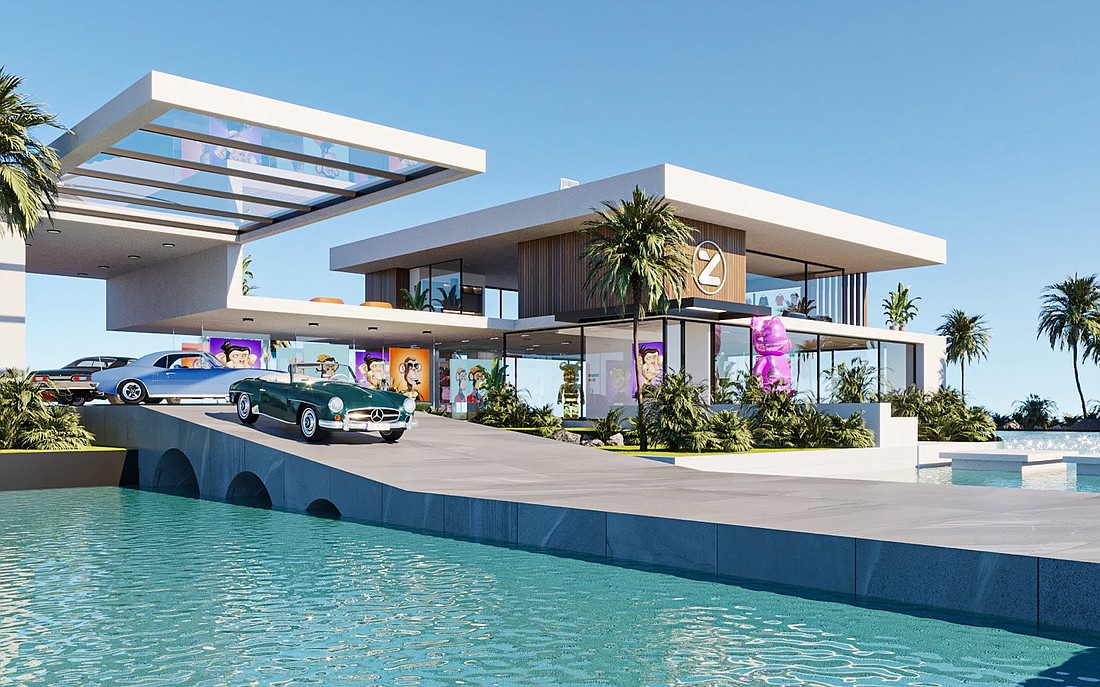- February 2, 2026
-
-
Loading

Loading

We’ve all dreamed about it: The Miami Beach life. There, nestled around the rich and famous and the international jet set, we’ll sit, sipping champagne, taking in the scene and the sun.
One can dream, right? Well, one no longer has to.
You can now make this fantasy a reality by buying the Soho Beach House, a luxury oceanfront property off Collins Avenue and next to the Radisson Miami Beach. If you act fast, this dream piece of property can be yours for just $361. Including tax.
Too good to be true? Kind of depends on your perspective.
This particular oceanfront property is in the metaverse, Tilia.Earth to be exact, meaning the money you are spending is real, but the property isn’t — at least in the sense of what most people born before 2000 consider real.
The metaverse is a digital universe unto its own. This world — actually worlds — lives online, allowing people to interact with one another, buy and sell property and build in a virtual space, usually through virtual reality and augmented reality, but also in games.
All that’s great, but what exactly is the metaverse?
Here’s how Wired magazine, a kind of bible for techies, defined it in an April story:
“Mentally replace the phrase ‘the metaverse’ in a sentence with ‘cyberspace.’ Ninety percent of the time, the meaning won’t substantially change. That’s because the term doesn’t really refer to any one specific type of technology, but rather a broad (and often speculative) shift in how we interact with technology.”
Confused? You are not alone.
“The next generation is excited about this stuff, whether we like it or not,” says Danny Rice, executive managing director and market leader for central and west Florida at commercial real estate firm Colliers, who spoke on the topic of the future of real estate technology at a Florida CCIM event in Fort Myers in late April. “It’s the first time I started to feel old, and I’m only 38 years old, and even I feel kind of creepy about what this metaverse thing looks like.”
Here’s the thing. Whatever it may be, the metaverse is with us — and it's here to stay.
Some of the top metaverse platforms today, though more are being built, include Cryptovoxels, Decentraland, The Sandbox and Somnium Space.
The real estate market is big in these four worlds, where space is limited and people are trying to buy up a piece of the property. According to a February CNBC report, real estate sales on the four metaverse platforms topped $501 million in 2021 and could double in 2022, to more than $1 billion.
One Florida company is already capitalizing on the demand for property by become a developer, of sort. Miami-based Landz.io, which runs Landz Estates, is selling non-fungible tokens (NFTs) in exchange for 5,000 mansions, 1,500 museums and 500 headquarters.
The way it works is a buyer purchases the NFT and is given a key that allows them to personalize the NFT and then place it in the metaverse of their choice. For now, Landz is working with The Sandbox and Decentraland, though more metaverses are expected to join soon.
Like in the real world, the mansions, which, according to Landz.io, were designed with “insights from real life architects and space designers to give it a luxury touch and a feeling of reality,” each come with unique features and amenities. Owners can then personalize the mansions how they like, within reason.
Along with the mansion comes membership in the Landz Club, giving owners access to DJs, speakers and community chats, as well as to club-owned land in several metaverses to host events.
The question that remains, then, is what exactly is the benefit to paying for a property inside what is essentially a computer program? The answer may be in the question, which is probably similar to the one people in the early 1990s asked, “Why would I send a letter on a computer when I can just walk down to the mailbox?”
But one thing is certain in the world of real estate: if you are one of those people who prefer the real world to a digital world, you can still live out that Miami Beach dream — it’ll just cost you more. The oceanfront Soho Beach House sold a couple of years back for $103 million.